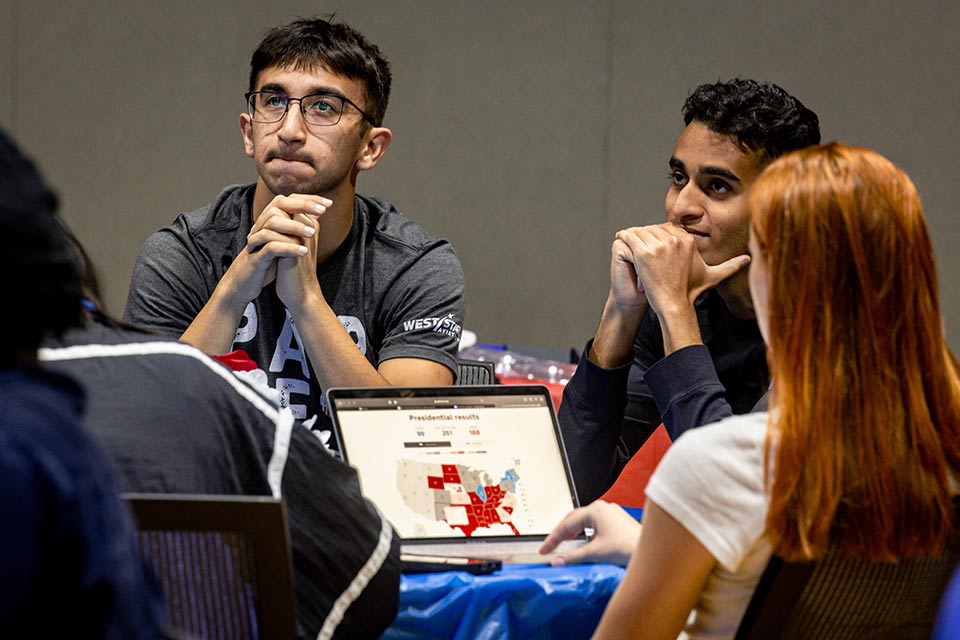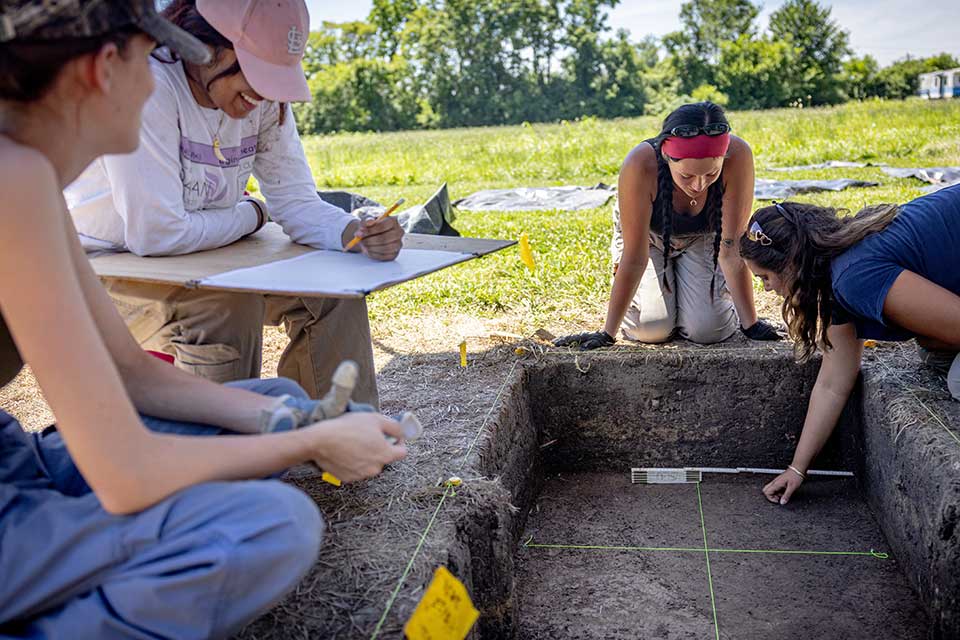Prepare for a Career in Populations, Politics and History
How do our cultural and political differences pull us together or polarize us? Conversations around these questions — and work on their solutions — happen every day at Saint Louis University. Will you join in?
As a Catholic, Jesuit University, Saint Louis University has been encouraging students to explore their place in the world and their impact on it for more than 200 years. Our College of Arts and Sciences encourages cross-disciplinary examination of the problems of yesterday and today and cultivates in you the tools needed to provide solutions.
Graduate Ready for Your Career in Populations, Politics and History
Intern at the Missouri History Museum. Lobby for change at the state capitol or in Washington, D.C. Explore the ethical, moral and religious questions facing humanity with respected theologians and philosophers. And leave SLU ready to take the next step in your career, whether that's entering the workforce or further academic study.
As I begin to discern my post-grad plans, I know I have the skills as well as the resumé to pursue any avenue, whether that be law school, working in the public sector, or a Ph.D. program."
Maggie Kenney, Political Science Major
Where Do SLU's Populations, Politics and History Alumni Work?
SLU offers connections through our faculty and alumni that can lead to internships in government, nonprofits and the private sector that place you in the center of the communities or research that interests you most. According to data collected by Saint Louis University Career Services, top employers for recent graduates of SLU's populations, politics and history programs include:
- Cerberus Strategies
- Federal Reserve Bank of St. Louis
- St. Louis County Government
- State of Illinois
- State of Missouri
- U.S. Department of Veteran Affairs
- Wisconsin Legislature
career tracks for foreign service officers ^
median annual wage for sociologists in May 2024*
public-sector jobs in Missouri as of May 2025**
median annual wage for political scientists in May 2024*
























